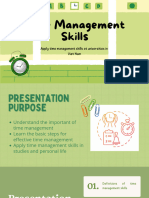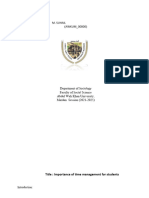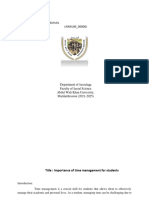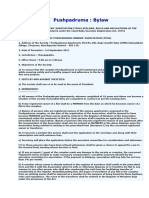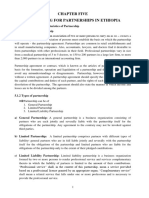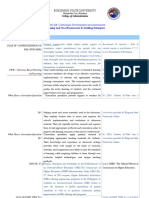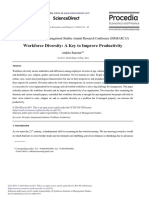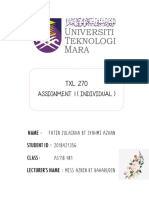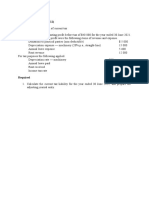0% found this document useful (0 votes)
24 views11 pagesFinal Assignment 1
Time management is a crucial soft skill for students, significantly impacting academic performance, productivity, and well-being. Effective strategies include setting clear goals, prioritizing tasks, creating schedules, and maintaining flexibility to manage multiple commitments. Mastering time management not only enhances academic success but also fosters personal development and prepares students for future professional environments.
Uploaded by
rajdipthkrCopyright
© © All Rights Reserved
We take content rights seriously. If you suspect this is your content, claim it here.
Available Formats
Download as PDF, TXT or read online on Scribd
0% found this document useful (0 votes)
24 views11 pagesFinal Assignment 1
Time management is a crucial soft skill for students, significantly impacting academic performance, productivity, and well-being. Effective strategies include setting clear goals, prioritizing tasks, creating schedules, and maintaining flexibility to manage multiple commitments. Mastering time management not only enhances academic success but also fosters personal development and prepares students for future professional environments.
Uploaded by
rajdipthkrCopyright
© © All Rights Reserved
We take content rights seriously. If you suspect this is your content, claim it here.
Available Formats
Download as PDF, TXT or read online on Scribd
/ 11
































